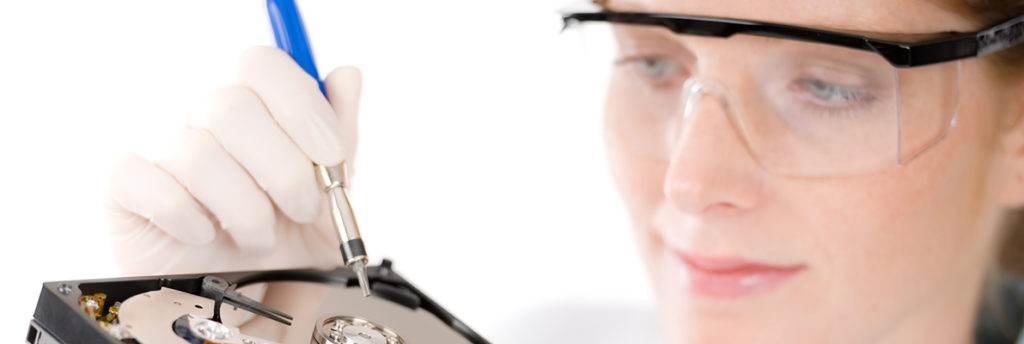

When people get a new computer or laptop, they’re not generally thinking about the hard drive that came with it right away. It’s later down the road when their computer is going slower and their storage space is nearly gone that upgrading the hard disk drive (HDD) becomes a consideration.
Computer users have a lot more options than they used to as far as storage capacity and size of a computer drive. One of the newer options to come out and recently become more affordable is a solid-state drive (SSD).
Is an SSD the right drive for your computer? What will an upgrade do for the performance?
Those are questions that Pro Tech Guy answers often for clients. It’s our goal to be your “go to” computer guru for any and all residential or business IT needs. We take a look at the device and how you’re using your computer to give the best advice on whether an SSD upgrade makes sense.
An SSD upgrade can be a low-cost way to speed up your computer.
According to a Business Insider article, a cheap SSD upgrade for less than $70 significantly sped up the user’s 10-year old iMac to almost like new.
So, what can you expect? Read on to learn all about SSDs and the pluses and minuses of this type of drive.
What’s the Difference Between HDD and SSD?
First, let’s discuss the differences between the hard disk drive and solid-state drive. While both have similar functions for data storage, how they do it is very different.
How an HDD Works
An HDD uses a rotating platter (or disk) with magnetic coating on each side to write data to the disk. Some larger drives may have more than one spinning platter. These disks spin at up to 10,000 revolutions per minute to allow the read-write heads to access any portion of them it needs to for saving and accessing files. You’ll often hear them spinning when using your computer or laptop.
How an SSD Works
There are no moving parts in an SSD, so no spinning disks and no noise. This type of drive uses interconnected flash memory chips, rather than the magnetic media, to store data. That flash memory is known as NAND-flash. Because it doesn’t have to spin around to access a particular part of a disk (like the HDD does) the speed of this drive is much faster than the HDD.
Pros & Cons of Solid-State Drives
Technology can be confusing, so we like to break things down into what an IT decision means for you. Our Pro Tech Guy story is all about helping people get the most out of their technology and enjoying the experience.
Let’s take a look at the pros and cons of an SSD as compared to a traditional HDD in some key computer use areas so you can decide if it’s right for you.
The Need for Speed
Do you silently scream at your computer when it goes slower than you do? A sluggish computer is one of the main reasons people look for upgrades. And in the speed category, the SSD comes out ahead.
Boot up time for an SSD is around 10-13 seconds, as compared to about 30-40 seconds for an HDD. The SSD can also open a file about 30% faster than HDD.
On a Budget
If you’re on a tight budget, then you may want to stick with a hard disk drive because it’s generally less expensive than a solid-state drive. Although SSDs have been coming down in price, so this may change in the future.
Currently when comparing cost per gigabyte of capacity, an SSD can be roughly twice the cost of an HDD.
Energy Saver
If you like to be as energy efficient as possible, then the SSD will be right up your alley. It consumes less power than the HDD because it doesn’t have that rotating disk. This also means less drain on a laptop battery and less issues with overheating.
Never Met a File I Didn’t Save
If you save tons of files, especially large graphic, game, or video files, then you’re going to want as much storage capacity as you can get. This is where SSD falls short of the HDD. The hard disk drives on the market currently offer you more capacity than the SSDs. A reason for this is the higher cost of the SSD, where something like a 4TB capacity would be too expensive for most people, so you don’t often see them that high.
Rough and Tumble
If you take your laptop around in a backpack and want your data to have a better chance of being safe should it be dropped, the SSD is a great choice for you. Because it has no moving parts, it’s more durable than an HDD and less susceptible to data loss caused by physical or external trauma.
Interested in Checking Out a Solid-State Drive?
Wondering how much faster an SSD could make your computer? Contact Pro Tech Guy and we’ll find you the best upgrade option and let you know whether or not it’s worth it for your system.
Contact us online and let’s chat today!
